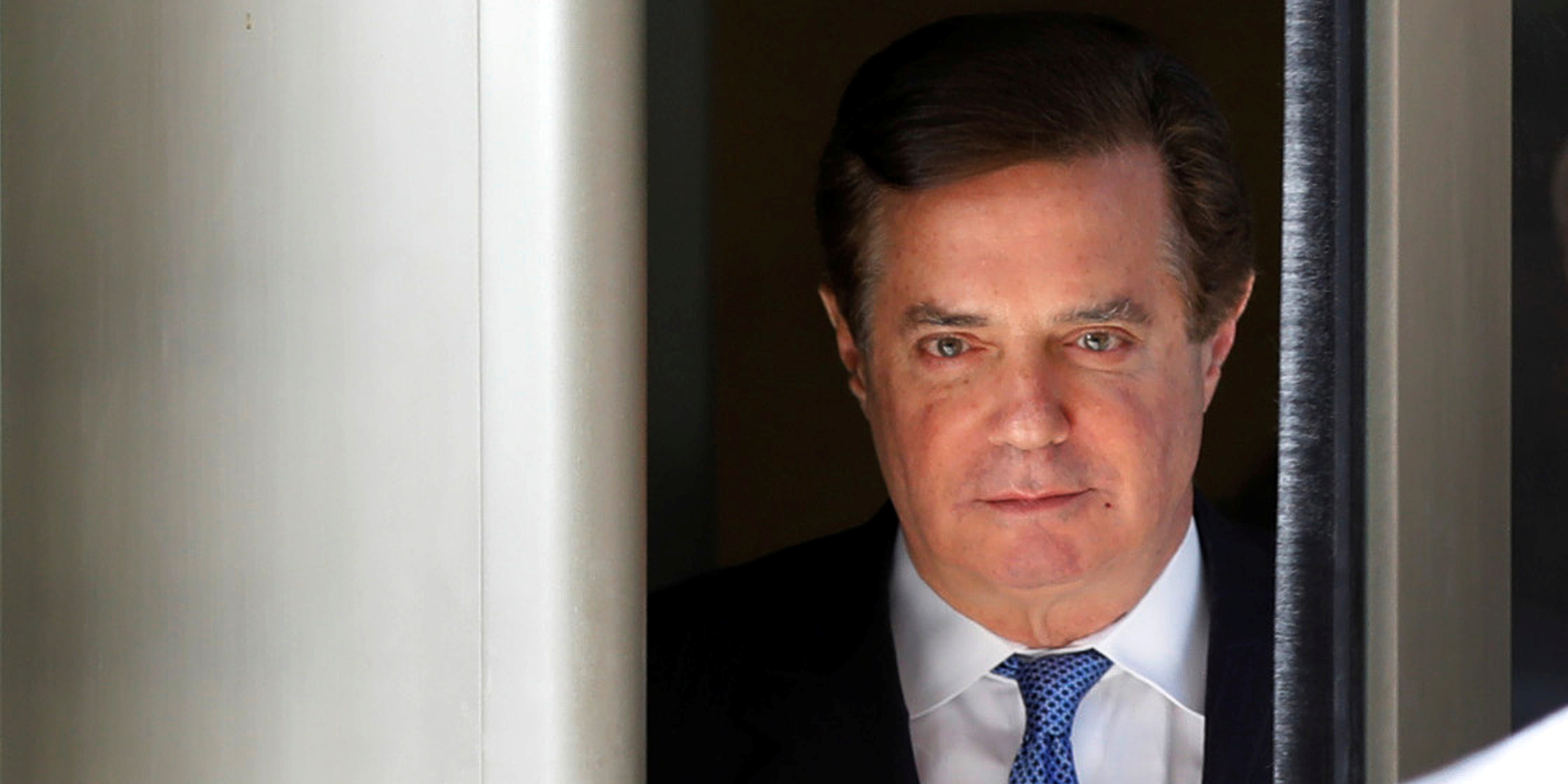- Paul Manafort, the former chairman of President Donald Trump’s campaign, was sent to jail on Friday to await trial.
- A federal judge revoked his bail after prosecutors accused Manafort of attempting to tamper with witnesses in the Russia investigation.
- He has pleaded not guilty to over two dozen charges, including obstruction of justice, tax and bank fraud, and failure to register as a foreign agent.
A federal judge on Friday revoked the bail of Paul Manafort, President Donald Trump’s former campaign chairman, sending him to jail to await trial.
Manafort has pleaded not guilty to more than 20 charges in the special counsel Robert Mueller’s Russia investigation, including tax and bank fraud, conspiracy, obstruction of justice, and failure to register as a foreign agent.
Manafort was initially out on supervised release, but prosecutors last week asked US District Judge Amy Berman Jackson in Washington, DC, to revoke Manafort’s bail after they learned that he and an associate, the former Russian intelligence operative Konstantin Kilimnik, tried to tamper with witness testimony in the investigation.
Shortly after filing court documents asking Jackson to revoke Manafort’s bail, Mueller’s team submitted a superseding indictment charging Manafort and Kilimnik with conspiracy to obstruct justice and obstruction of justice related to attempts at witness tampering.
The potential witnesses who prosecutors said Manafort and Kilimnik tried to influence are Alan Friedman and Eckart Sager, two former journalists based in Europe. Friedman and Sager spearheaded efforts in 2013 by the Hapsburg Group - a lobbying organization consisting of former European leaders - to lobby on behalf of Viktor Yanukovych, then Ukraine's president, in Europe and the US.
Prosecutors said in a separate filing last week that Manafort's and Kilimnik's activities took place over several days in February, after Manafort's longtime associate Rick Gates pleaded guilty and began cooperating with prosecutors. Friedman and Sager were initially identified in court documents as "Person D1" and "Person D2."
In one communication, Manafort sent Friedman a message with a link to a Business Insider article about the Hapsburg Group's activities. The article said, among other things, that the Hapsburg Group worked in the US and in Europe. The filing showed that one minute after sending the article, Manafort sent Friedman a message saying he had "made clear" that the group worked only in Europe.
Friedman subsequently contacted Mueller's office and said he believed Manafort's messages were part of an effort to "suborn perjury," or coax them into giving false testimony, because he knew the group worked in both Europe and the US.
When Friedman didn't respond to Manafort's messages, Kilimnik reached out to Sager to relay the same message and told Sager that Manafort had been attempting to reach Friedman.
Manafort's lawyers argue that the Hapsburg Group's lobbying campaign on behalf of Yanukovych was in Europe and that Manafort's and Kilimnik's outreach to Friedman and Sager proves that. Manafort's arraignment on the witness-tampering charge is also scheduled for Friday.
In response to Manafort's lawyers' claim that the Hapsburg Group's lobbying was limited to Europe, Mueller's office submitted two memos involving Friedman, Sager, Manafort, and Yanukovych to the court in a filing on Tuesday night. The memos appear to show the group working to improve Yanukovych's image in the US in addition to Europe.

